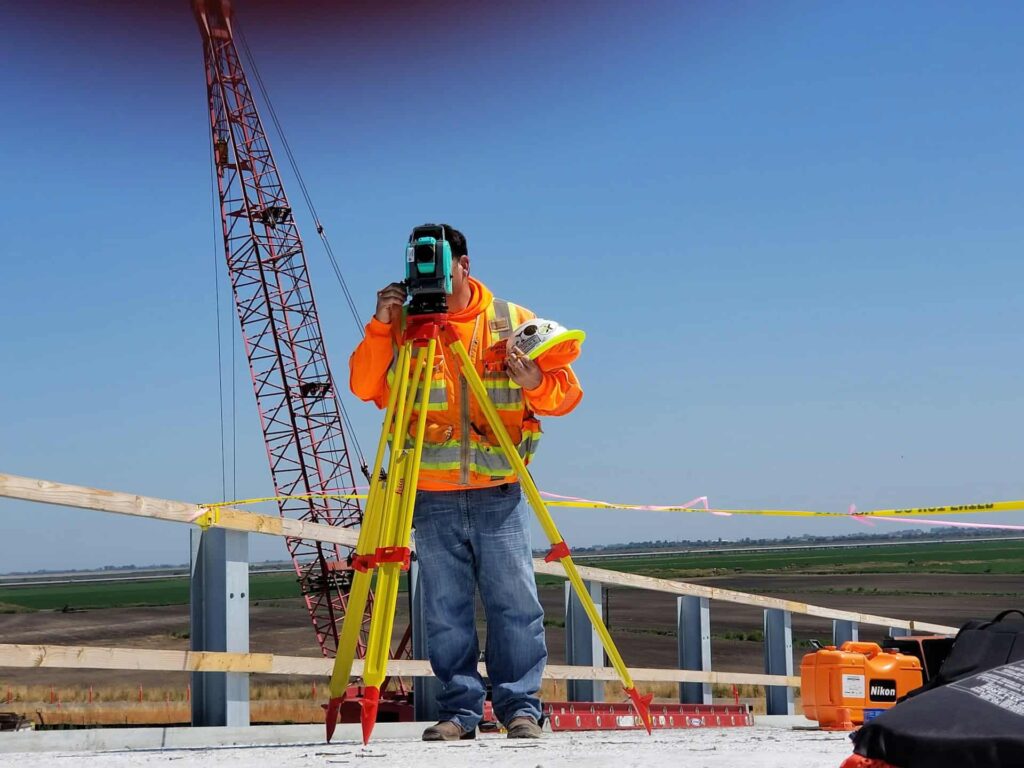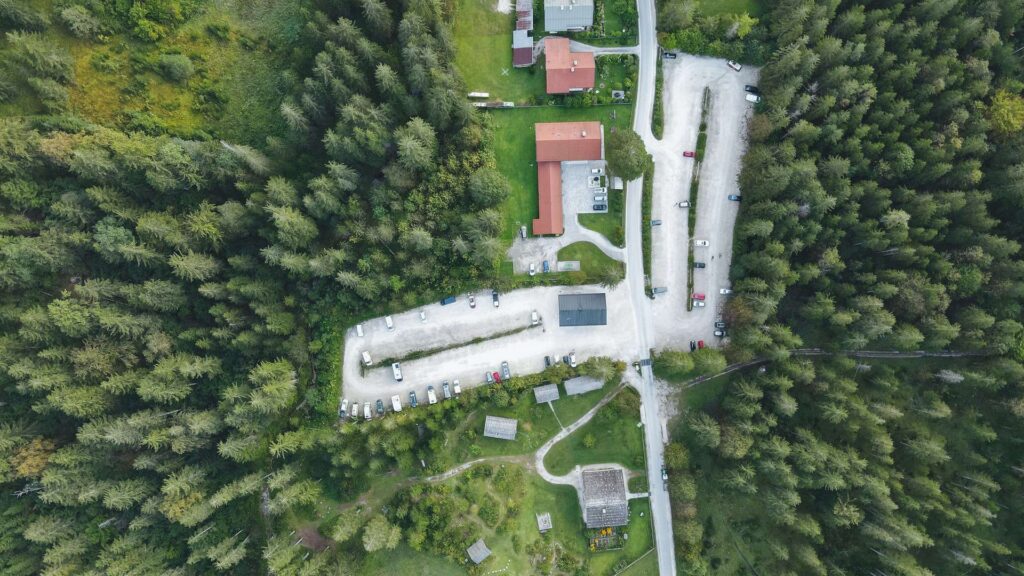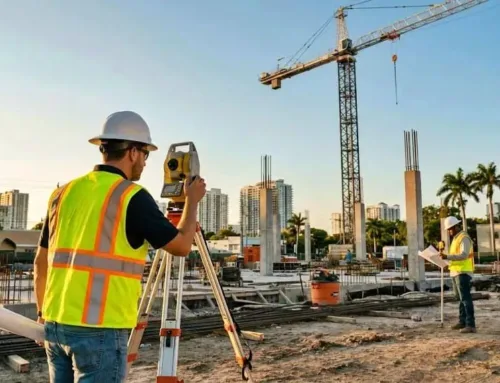Copyscape shows no plagiarism:Copyscape – Premium Search – Google Chrome (gyazo.com)
AI detector shows that this is human-written content:Free AI Content Detector Tool | ChatGPT, Bard & GPT4 – Google Chrome (gyazo.com)
Land Surveyor In North Carolina
SEO: Land Surveyor In North Carolina | Millman National Services
Meta: Discover the vital role of land surveyors in North Carolina, their qualifications, and services in the field.
ALT Text: aerial photography of North Carolina city buildings
Land surveying is a critical profession in North Carolina, playing a pivotal role in construction, development, and property delineation. This article delves into the multifaceted job of a land surveyor in the state, outlining the qualifications required, the responsibilities they shoulder, and the career opportunities available in this field. Additionally, it navigates the broader landscape of land surveying services in North Carolina, emphasizing the importance of surveys in development and the benefits of professional associations.
Key Takeaways
- Land surveyors in North Carolina require a blend of formal education and hands-on experience, with most positions requiring a Bachelor’s degree in Surveying or Civil Engineering and licensure as a Professional Land Surveyor.
- Surveyors play a crucial role in construction projects, providing topographic, boundary, and right-of-way surveys, and must be proficient with modern surveying instruments and CAD software.
- Professional growth in land surveying is fostered through various opportunities such as mentorship, specialized skill development, and involvement with the North Carolina Society of Surveyors which offers resources and networking.
Exploring the Role of a Land Surveyor in North Carolina
Essential Qualifications for a Professional Land Surveyor
To excel as a professional land surveyor in North Carolina, especially in the realms of commercial land usage, zoning, and drone surveys, you must possess a blend of formal education and hands-on experience. A Bachelor’s degree in Surveying, Civil Engineering, or a related field is typically required, along with a Professional Land Surveyor (PLS) license specific to North Carolina.
Your journey will include a minimum of 3-5 years of experience, with a strong emphasis on NCDOT construction layout and proficiency in surveying instruments, CAD software, and GPS technology. Here’s what you need to focus on:
- Acquiring a solid foundation in survey computations and office/field procedures.
- Gaining experience with AutoCADD Civil 3D and GPS surveys, which are crucial for modern surveying tasks.
- Developing excellent communication and organizational skills to manage multiple survey projects effectively.
Remember, ALTA surveyors must meet rigorous educational and licensing requirements, including passing exams and completing internships. Confirm surveyor credentials and adherence to state laws before hiring. This ensures that your commercial projects adhere to the highest standards of accuracy and legal compliance.
Key Responsibilities in Construction Layout and Surveying
As a land surveyor in North Carolina, expertise in construction layout and surveying is pivotal for commercial development projects. You’ll be tasked with conducting topographic surveys to collect critical data on elevation, contours, and the existing features of the land. This information is essential for planning and executing construction projects that comply with local zoning regulations.
Role includes:
- Designing Storm Drainage systems based on NCDOT roadway plans, ensuring they meet approval standards before field layout.
- Setting markers for wet utilities, defining clearance boundaries, aligning roadways, placing stakes for slopes, and establishing final grades for materials like concrete and asphalt paving.
- Collaborating with project managers and engineers to synchronize layout activities, guaranteeing precision in the construction staking process.
Moreover, you’ll be responsible for maintaining accurate records of survey data and producing as-built surveys and final reports. This documentation is crucial for verifying that construction work adheres to the approved plans. With the advent of technology, incorporating drone surveys into the practice can enhance the accuracy and efficiency of work, offering a competitive edge in the commercial land surveying market in North Carolina.
Related: Everything You Need To Know About Topographic Surveys
Essential Qualifications for a Professional Land Surveyor in North Carolina
When seeking the services of a land surveyor in North Carolina, it’s essential to ensure they possess the following qualifications:
- Certification: Look for professionals who have completed programs like the Certified Survey Technician (CST) Program, indicating a commitment to ongoing education and skill development in the field.
- Licensing: Verify that the surveyor is licensed to practice in North Carolina, demonstrating their adherence to professional standards and regulations.
- Experience: Consider surveyors with a proven track record of successful projects and experience working in diverse environments, particularly in areas relevant to your specific needs, such as commercial land usage or zoning regulations.
- Technology Proficiency: Assess the surveyor’s proficiency in utilizing advanced technologies like LiDAR and drone surveys, which can provide more accurate and efficient results for your project.
- Professional Involvement: Look for surveyors who actively participate in professional organizations such as the North Carolina Society of Surveyors, as this indicates a commitment to staying updated on industry best practices and standards.
By prioritizing these qualifications when selecting a land surveyor, you can ensure that you’re partnering with a skilled professional who can provide valuable insights and contribute to the success of your project while upholding safety and regulatory standards in North Carolina.
Related: ALTA/NSPS Land Title Survey minimum standard detail requirements
Navigating the Land Surveying Landscape in North Carolina
Diverse Surveying Services Offered Across the State
In North Carolina, the landscape of land surveying is as varied as the terrain itself. As a stakeholder in commercial development, you’re likely aware of the critical role that North Carolina surveyors play in ensuring the success of your projects. From the bustling streets of Charlotte to the serene beaches of the Outer Banks, surveyors provide indispensable services tailored to commercial land usage, zoning regulations, and the innovative use of drone technology.
Surveying services in North Carolina cover a broad spectrum, including boundary, location, control, and topographic surveying, all utilizing the latest robotic and GPS equipment. This ensures that your commercial projects are built on a foundation of precision and legal compliance. Moreover, the use of advanced surveying techniques like LiDAR and drone surveys offers an unprecedented level of detail and efficiency, crucial for informed decision-making and project planning.
Here’s what you can expect from surveying services in the state:
- A comprehensive understanding of zoning laws to guide your development process.
- Detailed site analysis to optimize land usage for your commercial endeavors.
- State-of-the-art technology for accurate and efficient survey results.
Remember, whether you’re in Kitty Hawk or Cary, the expertise of local surveyors is just a consultation away. Check their locations and services to ensure your project’s needs are fully met.
Why Obtaining a Land Survey is Crucial for Development
When you’re eyeing commercial land development in North Carolina, understanding the lay of the land is not just beneficial, it’s essential. A land survey acts as a critical tool for ensuring that your development plans align with local zoning regulations and maximize the potential of the property. Here’s why you should consider a land survey before moving forward:
- It clarifies property boundaries, preventing disputes with neighboring landowners.
- Surveys identify any easements or encroachments that could affect your development plans.
- A detailed survey can reveal topographical features that influence building placement and land use.
Incorporating drone surveys into your due diligence can provide a comprehensive overview of the site, offering high-resolution imagery and precise measurements. This modern approach to surveying can be particularly useful in complex commercial projects where traditional methods may fall short. Remember, a recorded map review from sources can provide valuable insights into the history and layout of the property. By investing in a thorough land survey, you’re not just complying with legal requirements; you’re laying the groundwork for a successful development project.
Related: Everything You Need To Know About Drone Surveying
Joining the North Carolina Society of Surveyors: Benefits and Resources
As you delve into the world of commercial land usage and zoning, consider the advantages of joining the North Carolina Society of Surveyors (NCSS). Membership in the NCSS provides you with a wealth of resources tailored to the unique landscape of North Carolina, including access to the latest in drone survey technology and practices.
By becoming a member, you gain invaluable insights into the ALTA Land Survey process, which is critical for commercial transactions and due diligence. The NCSS website is a treasure trove of information, detailing buyer and seller responsibilities for surveys and offering guidance on commercial due diligence. Services like those offered by Millman National Land Services exemplify the high standard of expertise available to you.
Membership also includes:
- Access to the MAPS Database for comprehensive survey records
- Opportunities for continuing education through seminars and online courses
- Networking with accomplished members who can mentor you in boundary surveying skills
Whether you’re a seasoned professional or aspiring to obtain your licensure, the NCSS supports your journey with tools and connections that can propel your career forward. Embrace the opportunity to learn from industry veterans in a state that values the precision and skill of land surveyors.
Embark on a journey through the complex terrain of land surveying in North Carolina with the expert guidance of Millman National Land Services. Our dedicated team is equipped to handle all your surveying needs, from ALTA Land Surveys to Zoning Compliance Reports.
Don’t let the intricacies of property lines and zoning laws slow you down. Visit our website today to place an order or get a free quote, and ensure your project is in the hands of professionals committed to precision and compliance.
Conclusion
The role of a Land Surveyor in North Carolina is multifaceted, requiring a blend of technical expertise, practical experience, and a commitment to precision and accuracy. With a focus on construction layout, NCDOT projects, and a variety of residential and commercial undertakings, surveyors are integral to the development and maintenance of the state’s infrastructure. The demand for skilled surveyors in the Piedmont region and beyond is evident, with opportunities for career growth and professional development, especially for those with the drive to learn and adapt to evolving technologies like GPS, CAD, and LiDAR. North Carolina’s surveyors not only contribute to the state’s growth but also enjoy the benefits of working in a dynamic field with a supportive professional community, as exemplified by the North Carolina Society of Surveyors. Whether one is starting their career or looking to advance, the prospects in land surveying in North Carolina are promising and rewarding.









